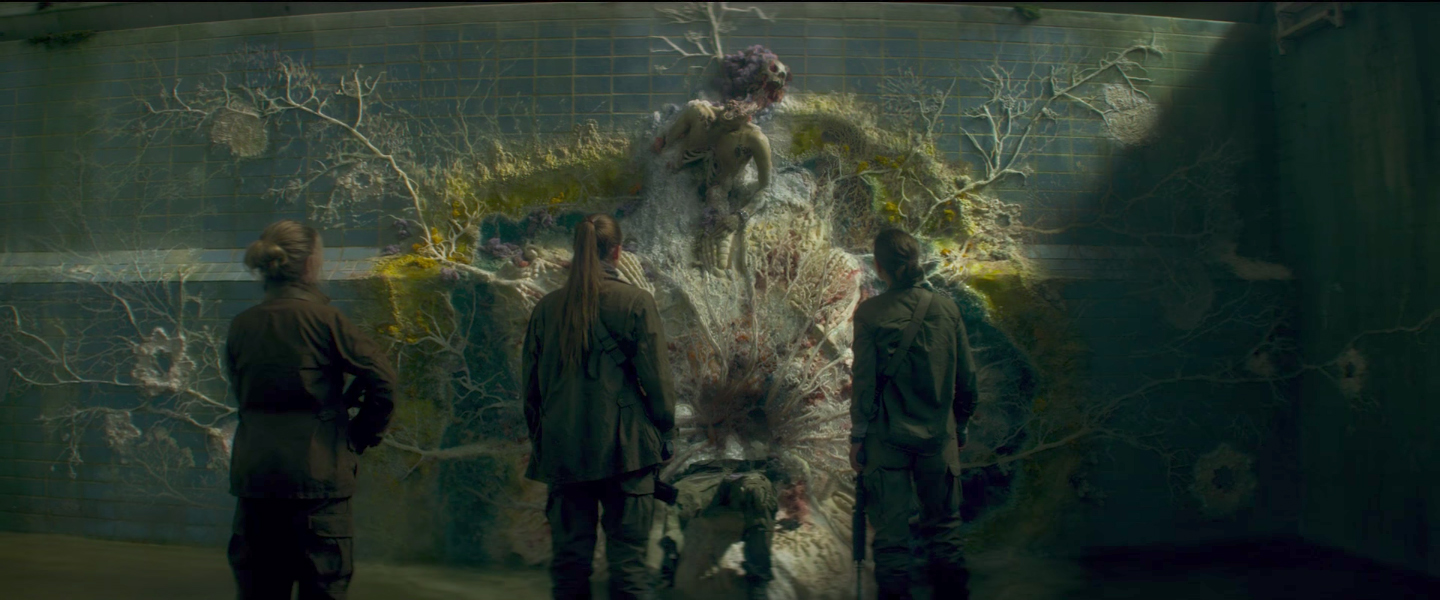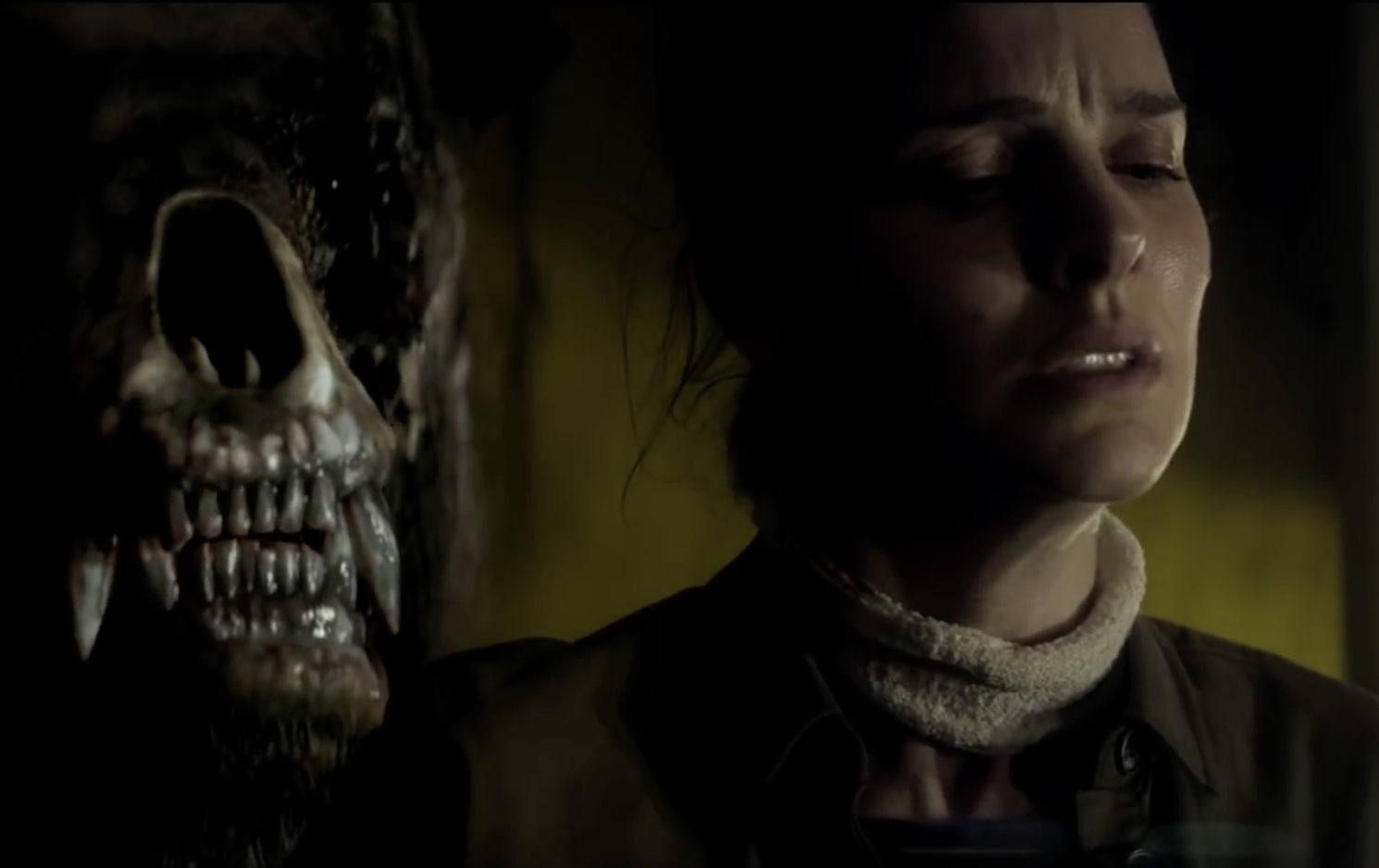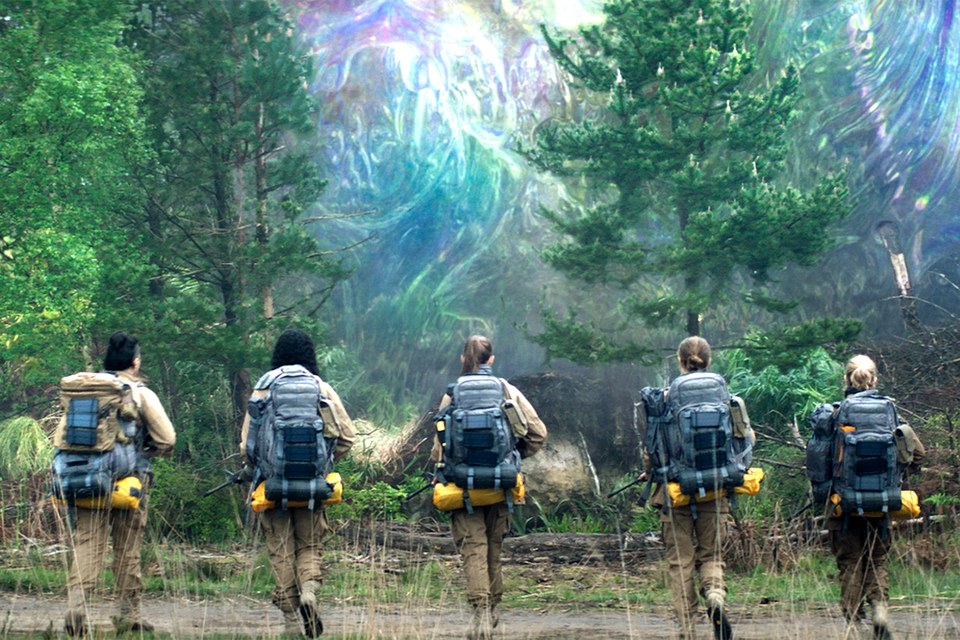Alex Garland, writer of Danny Boyle masterpieces 28 Days Later… and Sunshine, his own novel The Beach, and writer-director of 2016’s brilliant sleeper mind-blower Ex Machina, brings us an adaptation of Jeff VanderMeer’s novel Annihilation. It’s a subdued, eerie, and nightmarishly beautiful film that follows Lena (Natalie Portman) and a team of scientists into an area of Florida known as The Shimmer. It also stars Jennifer Jason Leigh, Tessa Thompson, Gina Rodriguez, Tuva Nuvotny, and Oscar Isaac.

Annihilation is going to be a divisive film for many people. It doesn’t resolve easily or serve up simple, quaint answers that make us feel better about what we just saw. It’s already drawn comparisons to the pantheon of science fiction films: Alien, Predator, Arrival, Solaris, 2001: A Space Odyssey, and understandably so. However, those who are going into Annihilation hoping for the next science fiction horror franchise will be sorely disappointed, as it shares much more DNA with Arrival than Predator.

The premise is simple. Biologist and former soldier Lena (Natalie Portman) needs to go into The Shimmer with a team of scientists in order to figure out what happened to her husband Kane (Oscar Isaac) who, after going missing for a year, returns home different, with his body inexplicably shutting down.
The Shimmer is an inexorably expanding area of Florida surrounded by a barrier that looks like an enormous soap bubble. It’s a boundary that blocks all radio waves, compass readings, and begins to invert and mutate everything within it. Lena’s team is comprised of four women: Dr. Ventress (Leigh), Anya Thorensen (Rodriguez), Cass Shepherd (Nuvotny), and Josie Radek (Thompson), and they’re hoping to identify and understand the source of The Shimmer so that they can stop it from engulfing the world.

From the moment they enter The Shimmer, everything grows curiouser and curiouser. They lose time, direction, readings, even coherent thoughts. At one point Ventress notes that it’s like suffering through the beginning stages of dementia, and they need to push through to the end before they lose themselves in The Shimmer. Garland effectively infuses within the audience a need to press onward, to find out more. He tempers the film’s tension with a calming, ethereal acoustic score which recalls Gustavo Santaollala’s score for the post-apocalyptic video game The Last of Us. It lulls us into a false sense of wonder at The Shimmer–as we follow the team further in, the music by Ben Salisbury and Geoff Barrow slowly shifts into something deeply and dreadfully alien.

Pressing forward through the seductive dread, the team encounters increasingly strange occurrences: plants and animals that have mutated, evidence of former teams who have never returned, and, of course, rising danger. We’re wooed by enticing strangeness: crystal trees on a beach, shark-crocodiles, wood people–all beautiful malignant mutations. The creature effects here, both computer generated and practical, are excellent. Most of which, unfortunately, the trailers over-teased for us, yet there’s one which will stay with me for awhile. I’ll leave the plot there, as that’s pretty much what the trailers have shown. However, you must see this in theatres. You must see it on a big screen with huge speakers that allow The Shimmer to engulf you and press in upon you.
As I dig into some more meat here, I should tell you that I had the misfortune to read Jeff VanderMeer’s book, the first in his Area X trilogy. I hated it–it’s a great premise wrapped in a nonsensical ball of strange, with nightmarish, incoherent descriptions and a disturbing lack of plot or real characterization. So, I’m really pleased to see the Alex Garland has only kept the premise, along with a few dollops of the incoherence, and a good swathe of the mystery, distilling the plot down to something quite intriguing.

The acting here sells the through-the-looking-glass uncanniness, too. Garland did a nice job of gathering his cast. You can feel Lena’s military and scientific training and her yearning to find answers. There’s one poor choice that Garland makes about Lena’s character that dilutes her motivations, but I won’t place that on Portman. Jennifer Jason Leigh’s Dr. Ventress is disturbingly detached, almost nonchalant or even bored. She’s always looking off into nothingness, doing things with her hands and fingers or doodling while conversing. Tessa Thompson is just subtly excellent, so genuine and watchable. But all the kudos must go to Gina Rodriguez, who is so viscerally, intensely vibrant that I couldn’t look away any time she was on screen. I have no experience with her, never seen Jane the Virgin, but I now want to see her in anything and everything, because she so totally sold her character.

I’ll reiterate something I alluded to earlier: this is a picturesque, seductive nightmare of a film. It’s really stunning, and it’s a shame that it’s going to get lost in the early months of the year, when Oscar-worthy films tend to get lost. For sound design and cinematography alone, this should be a contender. Garland and his Ex Machina cinematographer Rob Hardy have created some really beautiful shots. Garland effuses a rainbow-sheen throughout everything, reminding us we’re in The Shimmer. We’re constantly looking through things: The Shimmer itself, windows, reflections, a water glass. This is the heart of what Annihilation is really getting at: what is life? Who and what are we? We’re mirrors and reflections of that which surrounds us. And he ends with those questions–without satisfying answers. And I’m fine with that. Garland doesn’t want to just preach a sermon. He wants us, like Arrival or Solaris or 2001, to think on ourselves and our world and ask self-reflective questions.
During her debriefing, Lena reminds us that “It’s not destroying… It’s making something new.” For many predictable aspects of the film, Garland really is trying to do something different. He provides us not with answers, but questions. Garland tends toward big huge final act set pieces with chases and deaths and screams. This is a tad different. There absolutely are chases, deaths, and screams here, but they’re not Garland’s normal fare, and ultimately he focuses on his goal. Annihilation will ultimately stack up next to brilliant science fiction films like Arrival, Solaris, Moon, and Ex Machina, that leave us to sort out the meaning for ourselves.




